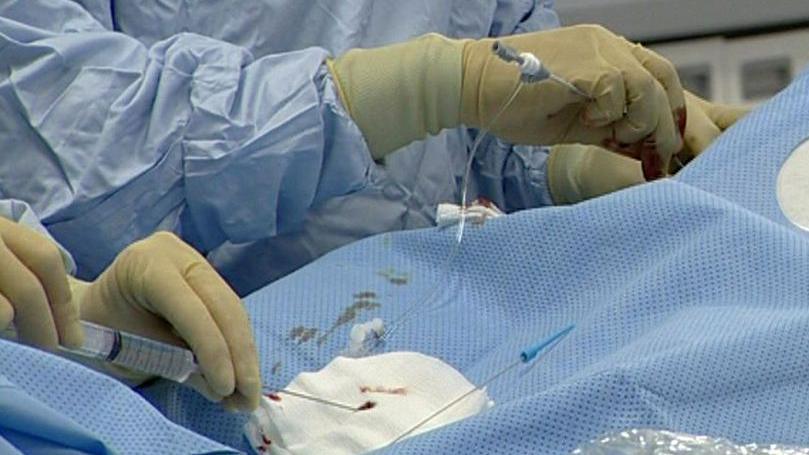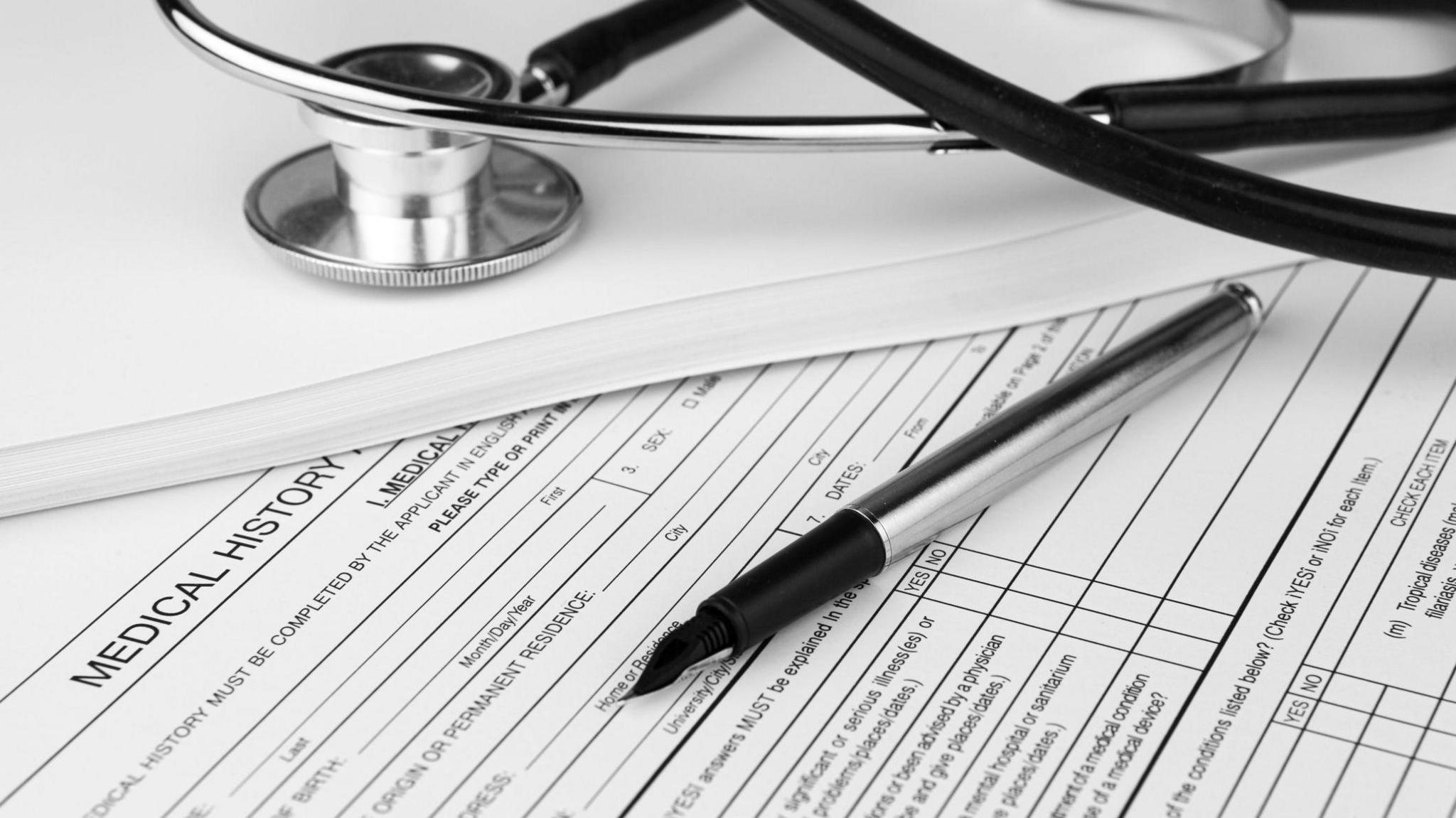Sense of hope is key for heart patients - study

Heart patients with a hopeful disposition are more likely to engage with their treatment, the research found
- Published
Heart patients who are pessimistic about their condition have an increased risk of dying or suffering a heart attack, according to academics who studied people undergoing treatment at an acute hospital.
The research was commissioned by the British Heart Foundation and presented to the British Cardiovascular Society.
"Our systematic review suggests that hopelessness could increase people's risk of death," said Dr Alexander Montasem, a senior lecturer in psychology.
The researchers, from the University of Liverpool and Lancashire Cardiac Centre, noted that one previous study of men with a pre-existing cardiovascular condition hopelessness was linked to a six-fold higher risk of death.
The researchers reviewed data from 12 studies involving 5,540 patients diagnosed with various different cardiovascular diseases.
Having less hope was associated with an increased risk of a first heart attack in people with no previous history of angina, even taking into account other risk factors like age, perceived health status, depression and socioeconomic risk factors.
'Benefits of support'
The review showed that more hope was linked to reduced cardiovascular symptoms like angina and post-stroke fatigue.
Dr Montasem said: "For many people, living with cardiovascular disease can be a difficult experience. Patients often struggle with debilitating symptoms as well as anxiety about the future.
"Mental health support could be very beneficial for a wide range of people with heart problems."
One study found that higher levels of hope protected women against experiencing angina – pain or discomfort in the chest often caused by coronary heart disease.
In a study of stroke patients of both sexes, greater hope was strongly linked to reduced levels of post-stroke fatigue.
Six studies included psychological data, which showed that more hope was linked to lower levels of depression and anxiety, and improved resilience and quality of life.
The data also indicated possible reasons for the reduced risk seen in people with more hope were that they also showed greater levels of self-care and were less likely to "skip" medications.
The report's authors now want to understand whether it is possible to boost patients' hope, for example by introducing specialist therapy, or chaplaincy support while in hospital, which could help improve health and lower death rates in this at-risk group.
Get in touch
Tell us which stories we should cover on Merseyside
Listen to the best of BBC Radio Merseyside on Sounds and follow BBC Merseyside on Facebook, external, X, external, and Instagram, external. You can also send story ideas via Whatsapp to 0808 100 2230.
- Published28 December 2024
